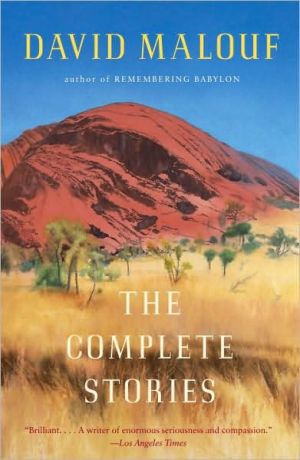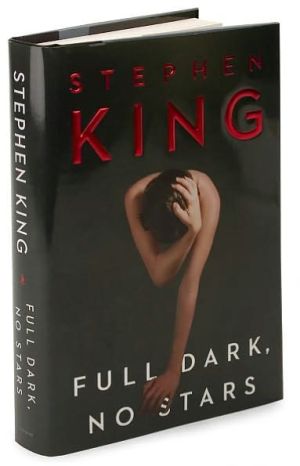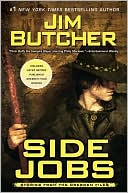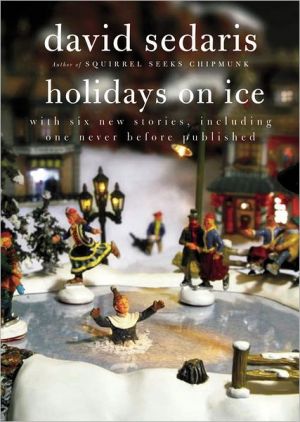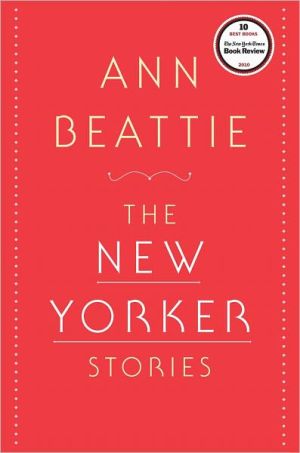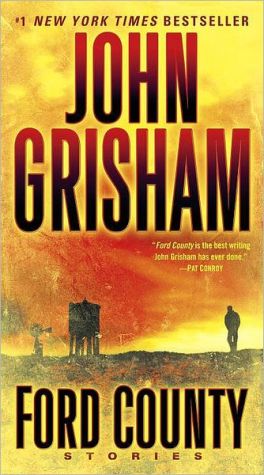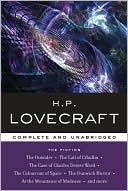The Complete Stories
From the internationally acclaimed Australian writer: a single volume gathering a brilliant new collection of his short fiction, Every Move You Make, and all of his previously published stories.\ In the heretofore unpublished Every Move You Make: bookish boys and taciturn men, strong women and wayward sons, fathers and daughters, lovers and husbands, a composer and his muse, a builder-architect and his legacy--here are their stories, whole lives brought dramatically into focus and powerfully...
Search in google:
In this stunning collection, internationally acclaimed writer David Malouf gives us bookish boys and taciturn men, strong women and wayward sons, fathers and daughters, lovers and husbands, a composer and his muse. These are their stories, whole lives brought dramatically into focus and powerfully rooted in the vividly rendered landscape of the vast Australian continent. Malouf writes about men and women looking for something they seem to have missed, or missed out on, puzzling over not only their own lives but also the place they have come to occupy in the lives of others. This single volume gathers both a new collection of Malouf's short fiction, Every Move You Make, and all of his previously published stories.The New York Times - Alison McCullochReading these rich, beautifully wrought stories, you can almost smell the ti trees and hear the screeching as the cockatoos take flight.
The Complete Stories \ By David Malouf \ Vintage Copyright © 2008 David Malouf\ All right reserved.\ ISBN: 9780307386038 \ \ \ The Valley of Lagoons\ \ When I was in the third grade at primary school it was the magic of the name itself that drew me.\ \ Just five hours south off a good dirt highway, it is where all the river systems in our quarter of the state have their rising: the big, rain-swollen streams that begin in a thousand threadlike runnels and fall in the rainforests of the Great Divide, then plunge and gather and flow wide-banked and muddy-watered to the coast; the leisurely watercourses that make their way inland across plains stacked with anthills, and run north-west and north to the Channel Country, where they break up and lose themselves in the mudflats and mangrove swamps of the Gulf.\ \ I knew it was there and had been hearing stories about it for as long as I could remember. Three or four hunting parties, some of them large, went out each year at the start of August, and since August was the school holidays, a good many among them were my classmates. By the time he was sixteen, my best friend, Braden, who was just my age, had been going with his father and his two older brothers, Stuart and Glen, for the past five years. But it was not marked on the wall-map in our third-grade schoolroom, and I could not find it in any atlas; which gave it the status of a secret place, accessible only in the winter when the big rains eased off and the tracks that led into it were dry enough for a ute loaded down with tarpaulins, cookpots, carbide lamps, emergency cansof petrol, and bags of flour, potatoes, onions, and other provisions to get in without sinking to the axle: a thousand square miles of virgin country known only to the few dozen families of our little township and the surrounding cane and dairy farms that made up the shire.\ \ It was there, but only in our heads. It had a history, but only in the telling: in stories I heard from fellows in the playground at school, or from their older brothers at the barbershop or at the edge of an oval or on the bleachers at the town pool.\ \ These stories were all of record "bags" or of the comic mishaps and organised buffoonery of camp life--plus, of course, the occasional shocking accident--but had something more behind them, I thought, than mere facts.\ \ Fellows who went out there were changed--that's what I saw. Kids who had been swaggering and loud were quiet when they spoke of it, as if they knew more now than they were ready to let on, or had words for, or were permitted to tell. This impressed me, since it chimed with my own expectations of what I might discover, or be let into, when I too got there.\ \ I stood in the shadows at the edge of what was being told, tuning my ear to the clamour, off in the scrub, of a wild pig being cornered while a kid no older than I was stood with an old Lee Enfield .303 jammed into the soft of his shoulder, holding his breath.\ \ An occasion that was sacred in its way, though no one, least of all the kid who was now retelling it, would ever speak of it that way.\ \ All that side of things you had to catch at a glance as you looked away. From the slight, almost imperceptible warping upwards of a deliberately flattened voice.\ \ In the first freshening days of June, and increasingly as July came on, all the talk around town, in schoolyards and changing sheds, across the counter at Kendrick's Seed and Hardware, along the veranda rails and in the dark public bars of the town's three hotels, where jurymen were put up when the district court was in session, and commercial travellers and bonded schoolteachers and bank clerks roomed, was about who, this year, would be going, and in which party and when.\ \ In the old days, which were still within living memory, they had gone out on horseback, a four-day ride, the last of it through buffalo grass that came right to the horses' ears, so that all you had to go on was bush sense, and the smell in the horses' nostrils of an expanse of water up ahead.\ \ Nowadays there were last year's wheel-marks. A man with a keen eye, crouched on the running-board of a ute or hanging halfway out the offside cabin window, could indicate to the driver which way to turn in the whisper of high grassheads, till the swishing abruptly fell away and you were out in the shimmering, insect-swarming midst of it: sheet after sheet of brimming water, all lit with sky and alive, like a page of Genesis, with spur-winged plover, masked plover, eastern swamphen, marshy moorhen, white-headed sheldrake, plumed tree duck, gargery teal, and clattering skyward as, like young bulls loose in pasture, the utes swerved and roared among them, flocks of fruit pigeon, squatters, topknots, forest bronzewings . . .\ \ My father was not a hunting man. The town's only solicitor, his business was with wills and inheritance, with land contracts, boundary lines between neighbours, and the quarrels, sometimes fierce, that gave rise to marriage break-ups, divorce, custody battles, and, every two or three years, the odd case of criminal assault or murder that will arise even in the quietest community. He knew more of the history of the shire, including its secret history, its unrecorded and unspoken connections and disconnections, than any other man, and more than his clients themselves did of how this or that parcel of their eighty- or hundred-acre holdings had been taken up out of what, less than a hundred years ago, had been uncharted wilderness, and how, in covert deals with the bank or in deathbed codicils, out of spite or through long years of plotting, this or that paddock, or canebrake, or spinney, had passed from one neighbour or one first or second cousin to another.\ \ When he and my mother first came here in the late Thirties, he'd been invited out, when August came round, on one of the parties--it was a courtesy, an act of neighbourliness, that any one of a dozen locals would have extended to an acceptable newcomer, if only to see how he might fit in.\ \ "Thanks, Gerry," I imagine him saying in his easy way--or Jake, or Wes. "Not this time, I reckon. Ask me again next year, eh?" And had said that again the following year, and the year after, until they stopped asking.\ \ He wasn't being stand-offish or condescending. It was simply that hunting, and the grand rigmarole, as he saw it, of gun talk and game talk and dog talk, was not his style. He had been a soldier in New Guinea and had seen enough perhaps, for one lifetime, of killing. It was an oddness in him that was accepted like any other, humourously, and was perhaps not entirely unexpected in a man who had more books in his house than could be found in the shire library. He was a respected figure in the town. He was even liked. But he wore a collar and tie even on weekdays, and men who were used to consulting him in a friendly way about a dispute with a neighbour, or the adding of a clause to their will, developed a sudden interest in their boots when they ran into him away from his desk.\ \ My mother too was an outsider. Despite heavy hints, she had not joined the fancy-workers and jam- and chutney-makers at the CWA, and in defiance of local custom sent all three of us to school in shoes. This was understandable in the case of my sisters. They were older and would grow up one day to be ladies. It was regarded as unnecessary and even, perhaps, damaging in a boy.\ \ After more than twenty years in the district my father had never been to the Lagoons, and till I was sixteen I had not been there either, except in the dreamtime of my own imaginings and in what I had overheard from others.\ \ I might have gone. Each year, in the first week of August, Braden's father, Wes McGowan, got up a party. I was always invited. My father, after a good deal of humming and ha-ing and using my mother as an excuse, would tell me I was too young and decline to let me go. But I knew he was uneasy about it, and all through the last weeks of July, as talk in the town grew, I waited in the hope he might relent. When the day came at last, I would get up early, pull on a sweater against the cold and, in the misty half-light just before dawn, jog down the deserted main street, past the last service station at the edge of town, to the river park where the McGowans' Bedford ute would be waiting for the rest of the party to appear, its tray piled high with tarpaulins, bedrolls, cook-pots, a gauze meat safe, and my friend Braden settled among them with the McGowan dogs at his feet, two Labrador retrievers.\ \ Old Wes McGowan and his crony, Henry Denkler, who was also the town mayor, would be out stretching their legs, stamping their boots on the frosty ground or bending to inspect the tyres or the canvas water bag that hung from the front bumper-bar. The older McGowan boys, Stuart and Glen, would be squatting on their heels over a smoke. I would stand at the gate of the ute chatting to Braden for a bit and petting the dogs.\ \ When the second vehicle drew up, with Matt Riley, the "professional," and his nephew Jem, Matt too would get down and a second inspection would be made--of the tyres, of the load--while Jem, with not much more than a nod, joined the McGowan boys. Then, with all the rituals of meeting done, Henry Denkler and Wes McGowan would climb back into the cabin, Glen into the driver's seat beside them, Stuart into the back with Braden and the dogs, and I would be left standing to wave them off; and then, freezing even in my sweater, jog slowly back home.\ \ The break came in the year after I turned sixteen. When I went for the third or fourth year running to tell my father that the McGowans had offered to take me out to the Lagoons and to ask if I could go, he surprised me by looking up over the top of his glasses and saying, "That's up to you, son. You're old enough, I reckon, to make your own decisions." It was to be Braden's last trip before he went south to university. Most of the shooting would be birds, but to mark the occasion as special Braden would also get a go at a pig.\ \ "So," my father said quietly, though he already knew the answer, "what's it to be?"\ \ "I'd really like to go," I told him.\ \ "Good," he said, not sounding regretful. "I want you to look out and be careful, that's all. Braden's a sensible enough young fellow. But your mother will worry her soul case out till you're home again."\ \ What he meant was, he would.\ \ Braden McGowan had been my best friend since I was five years old. We started school on the same day, sharing a desk and keeping pace with one another through pot-hooks and the alphabet, times tables, cursive, and those scrolled and curlicued capitals demanded by our Queensland State School copybooks. We dawdled to and from school on our own circuitous route. Past the Vulcan Can Company, where long shiny cut-offs of raw tin were to be had, which we carted off in bundles to be turned into weapons and aids of our own devising, past the crushing-mill where we got sticks of sugar cane to chew. Narrow gauge lines ran to the mill from the many outlying farms, and you heard at all hours in the crushing season the noise of trundling, and the shrill whistle of the engine as a line of carts approached a crossing, and rumbled through or clanked to a halt.\ \ In the afternoons after school and in the holidays, we played together in the paddocks and canebrakes of the McGowans' farm, being, as the mood took us, explorers, pirates, commandos, bushrangers, scouts on the track of outlaws or of renegade Navaho braves.\ \ Usually we had a troop of the McGowan dogs with us, who followed out of doggy curiosity and sometimes, in the belief that they had got the scent of what the game was, moiled around us or leapt adventurously ahead. But for the most part they simply lay and watched from the shade, till we stretched out beside them and let the game take its freer form of untrammelled thinking-aloud that was also, with its range of wild and rambling surmise, the revelation--even to ourselves, though we were too young as yet to know it--of bright, conjectural futures we would have admitted to no one else.\ \ "You two are weird," Braden's brother Stuart told us with a disgusted look, having caught on his way to the bails some extravagant passage of our talk. "God, you're weird. You're weird!"\ \ Stuart was four years older. He and the eldest of the three brothers, Glen, had farm work to do in the afternoons after school. Braden in those days was still little and free to play.\ \ They were rough kids, the McGowans, and Stuart was not just rowdy, I thought, but unpredictably vicious. He scared me.\ \ I had come late into a family of girls, two sisters who, from the beginning, had made a pet of me. Going over to the McGowans' was an escape to another world. Different laws were in operation there from the ones I was used to. Old Mr. McGowan had a different notion of authority from the one my father followed. Quiet but firmer. His sons, who were so noisy and undisciplined outside, were subdued in his presence. Mrs. McGowan, unlike my mother, had no interests beyond the piles of food she brought to the table and the washing--her men's overalls and shirts and singlets, and the loads of sheets and pillowcases I saw her hoist out of the copper boiler when I came to collect Braden on Monday mornings.\ \ She too had a softening influence on the boys. They might complain when she called them in from kicking a football round the yard, or working on a bike, to fetch in an armful of wood for the stove or to carry a basket of wet sheets to the line, and they squirmed when she tried to settle an upturned collar or hug them. But they did do what she asked in the end, and even submitted, with a good show of masculine reluctance, to hugging. \ \ Continues... \ \ \ Excerpted from The Complete Stories by David Malouf Copyright © 2008 by David Malouf. Excerpted by permission.\ All rights reserved. No part of this excerpt may be reproduced or reprinted without permission in writing from the publisher.\ Excerpts are provided by Dial-A-Book Inc. solely for the personal use of visitors to this web site.\
Every Move You MakeThe Valley of Lagoons 3Every Move You Make 46War Baby 66Towards Midnight 99Elsewhere 109Mrs. Porter and the Rock 122The Domestic Cantata 152Dream StuffAt Schindler's 179Closer 198Dream Stuff 204Night Training 228Sally's Story 236Jacko 's Reach 251Lone Pine 257Blacksoil Country 269Great Day 281AntipodesSouthern Skies 327A Trip to the Grundelsee 344The Empty Lunch-tin 354Sorrows and Secrets 361That Antic Jezebel 372The Only Speaker of His Tongue 384Out of the Stream 388The Sun in Winter 400Bad Blood 406A Change of Scene 414In Trust 434A Traveller's Tale 441A Medium 465Child's PlayEustace 471The Prowler 489
\ Alison McCullochReading these rich, beautifully wrought stories, you can almost smell the ti trees and hear the screeching as the cockatoos take flight.\ —The New York Times\ \ \ \ \ Library JournalIn this collection of four sets of previously published stories and one set of new stories, Malouf-winner of the first International IMPAC Dublin Literary Award for Remembering Babylon-explores our place in the world, focusing on the Queensland state of Australia. The theme of the interplay between the land and its people is introduced in the first story, "The Valley of Lagoons," in which a 16-year-old boy is finally allowed to explore this mysterious area his friends have been visiting for years and finds it changes him. In "Elsewhere," a father attending the funeral of his daughter with his son-in-law quickly learns how different life is in Sydney compared with their rural existence. In "Mrs. Porter and the Rock," a visit to Ayers Rock helps the title character understand an earlier incident in her life. Other stories examine the issue of our place in the larger scheme of things, as in "Southern Skies," in which an astronomer shows a teenage boy the mysteries of the universe. Throughout, the prose continually evokes the environment and the effect of time and place on each individual's life; for large collections.\ —Joshua Cohen\ \ \ \ Kirkus ReviewsA gathering of the short fiction-some of it not so short-of Australia's poet of loneliness. In any given story by Malouf (Dream Stuff, 2000, etc.), someone is talking past someone else; think Cheever, or possibly Kafka, in the outback, the hills echoing not with screams but silences-to say nothing of a lot of crocodile thrashing, bird squawking, joey thumping and the splashing of "the big, rain-swollen streams that begin in a thousand threadlike runnels and falls in the rainforests of the Great Divide." Often his protagonists are children, as in the boy of "At Schindler's," who must accept the fact that his father is missing in action in World War II, or the kid of "The Valley of Lagoons," forced to intercede between a would-be pal and a sister who can think of nothing but escaping the backcountry and getting to some congenial city. Malouf's adults are scarcely more able to comprehend the complexities of the world, but they try. In "War Baby," a valuable contribution to Australia's surprisingly small literature on the Vietnam War-in which many thousands of Australians fought-the central character is transformed from unsure boy to combat-grizzled veteran. Even though he is still very young, he is now experienced enough to understand the anonymity of death and "how small the pressures might be that determine the sum of what is and what we feel, the fugitive deflections and instinctive blind gestures that might be the motor of change." Change drives many of these fictions: changes of venue as lovers drift apart, changes as the once-remote scrubland spits up "a new shopping mall, with a skateboard ramp for young daredevils, two floodlit courts for night tennis and, on the river side, aHeritage Walk laid out with native hybrids"-minus, of course, aborigines, cowboys, loggers and other characters from Australia's history. A superb collection of stories that are quiet, assured, lyrical, aching.\ \
